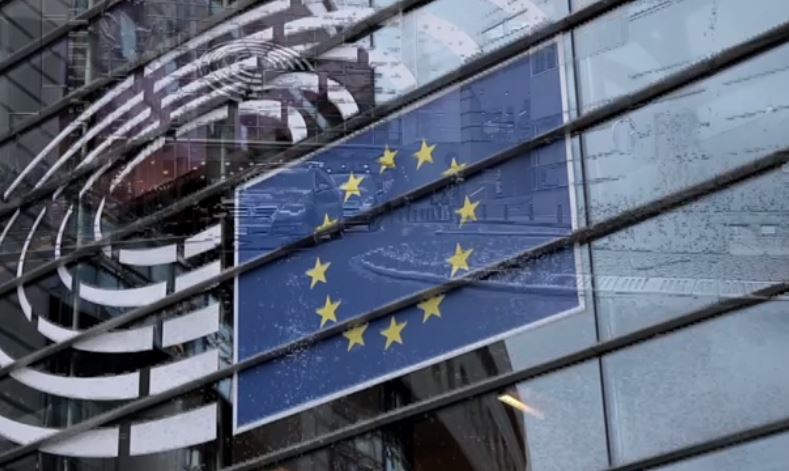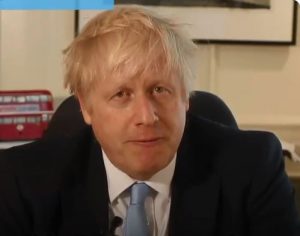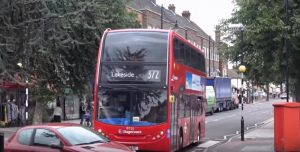
The Guardian / UK: EU leaders have said there will be no talks on Britain’s future relationship with the bloc until the UK government makes “sufficient progress” on the Brexit divorce, including settling its bills and citizens’ rights.
“Once, and only once we have achieved sufficient progress on the withdrawal, can we discuss the framework for our future relationship,” said Donald Tusk, the European council president. “Starting parallel talks will not happen.”
Speaking as the EU’s draft negotiating guidelines were sent to national capitals, Tusk said the EU27 were united. Talks would be “difficult, complex and sometimes confrontational,” he said, but the bloc would not seek to punish Britain. “Brexit itself is already punitive enough,” he said.
The guidelines make clear it will be for the council to decide when “sufficient progress” has been made on the withdrawal deal, whose priorities will include the rights of EU citizens in the UK and British citizens on the continent, and agreement on Britain’s legal and budgetary commitments and liabilities.
Tusk rejected the description “Brexit bill” and said it was only fair that the UK paid what successive governments had signed up to. “It is only fair towards all those people, communities, scientists, farmers and so on to whom we, all the 28, promised and owe this money,” he said.
The UK’s only land border with the EU, between Northern Ireland and the Republic, will also be a key priority in the divorce deal, with the EU calling for “flexible and imaginative solutions … with the aim of avoiding a hard border”.
Speaking alongside Tusk, Joseph Muscat, the prime minister of Malta, said the negotiations would undoubtedly be tough, “but it will not be a war” and the two sides needed to remain friends.
The draft guidelines may well be revised over the next month, but are as likely to be strengthened as they are weakened. Tusk will chair a summit of the EU’s 27 prime ministers and presidents at the end of April to finalise the bloc’s negotiating position before talks with the UK begin.
The European commission will then draft its more detailed negotiating directives, which are expected to be adopted at a meeting of European ministers on 22 May, after which formal talks between the EU’s chief negotiator, Michel Barnier, and Britain’s secretary of state for exiting the EU, David Davis, can begin.
The guidelines say the UK must accept EU rules such as the “four freedoms” (including free movement), continuing budget contributions and the judicial oversight of the European court of justice during a transitional period likely to follow its departure in 2019 and before any free trade pact can be finalised.
On the future trade deal, which they say can be concluded only once Britain has formally left, the guidelines make clear the bloc’s primary objective is to “preserve the integrity of the single market”, which “excludes participation based on a sector-by-sector approach”.
Theresa May has said Britain aims to leave the single market and most of the customs union in favour of agreeing a bespoke free trade deal for individual industrial sectors such as the automotive and pharmaceuticals industries.
But a non-member “cannot have the same rights and enjoy the same benefits as a member” and “there can be no ‘cherry picking’”, the guidelines say. Separate negotiations between individual EU states and the UK are also ruled out.
The guidelines also make clear that any trade deal must be on “a level playing field in terms of competition and state aid”, with safeguards against “unfair competitive advantages through … fiscal, social and environmental dumping”.
A No 10 spokesman said: “These are draft guidelines and we look forward to beginning negotiations once they have been formally agreed by the 27 member states.
“It is clear both sides wish to approach these talks constructively, and as the prime minister said this week, wish to ensure a deep and special partnership between the UK and the European Union.”
But Owen Smith, the former Labour leadership candidate, said Tusk’s statement showed how May’s “lofty rhetoric is colliding with hard reality”. The guidelines “underline the difficulty the government will have in keeping its Brexit promises,” he said.
“Ministers and leave campaigners have presented Brexit as a cost-free option. It is not. There will be a cost to Brexit, we just do not know how deep it will be. It is time for the government to start levelling with the British people.”
Tim Farron, the Liberal Democrat leader, said the guidelines “show the strength of the EU in these negotiations, and the carelessness of the UK government in isolating themselves from our European allies”.
“The terms are clear: no sector-by-sector deals, no bilateral negotiations and no new trade deal until the withdrawal terms are agreed. This leaves no doubt that … comments about special arrangements for the car industry or financial sector are worthless.”
Barnier has said he hopes the main outlines of the withdrawal agreement will be clear by autumn, enabling the UK and the EU to reach a broad agreement at a summit in December.
He has pencilled in January 2018 as the point where he hopes to start talks with the British on a future relationship. But there are lingering fears the talks could collapse. The EU wants an agreement, the draft text says, “but it will prepare itself to be able to handle the situation also if the negotiations were to fail”.
A senior EU official said the European commission took little notice of May’s claim that no deal was better than a bad deal with the EU.
Noting that the UK was “four or five times” more dependent on exporting to the EU than the other way round, he said: “Threats are never a good instrument in a negotiation and empty threats are even poorer instruments in a negotiation.”
The official said that if the UK walked away without a deal, “it will be bad for the union, but I think it would be fair to say it would be very bad for the UK”.
On citizens’ rights, the commission said it was presumed that UK promises to protect the rights of EU nationals already in the country would include the right for those who have previously lived there to return, and for current and future spouses and dependants to join those already in the country.




